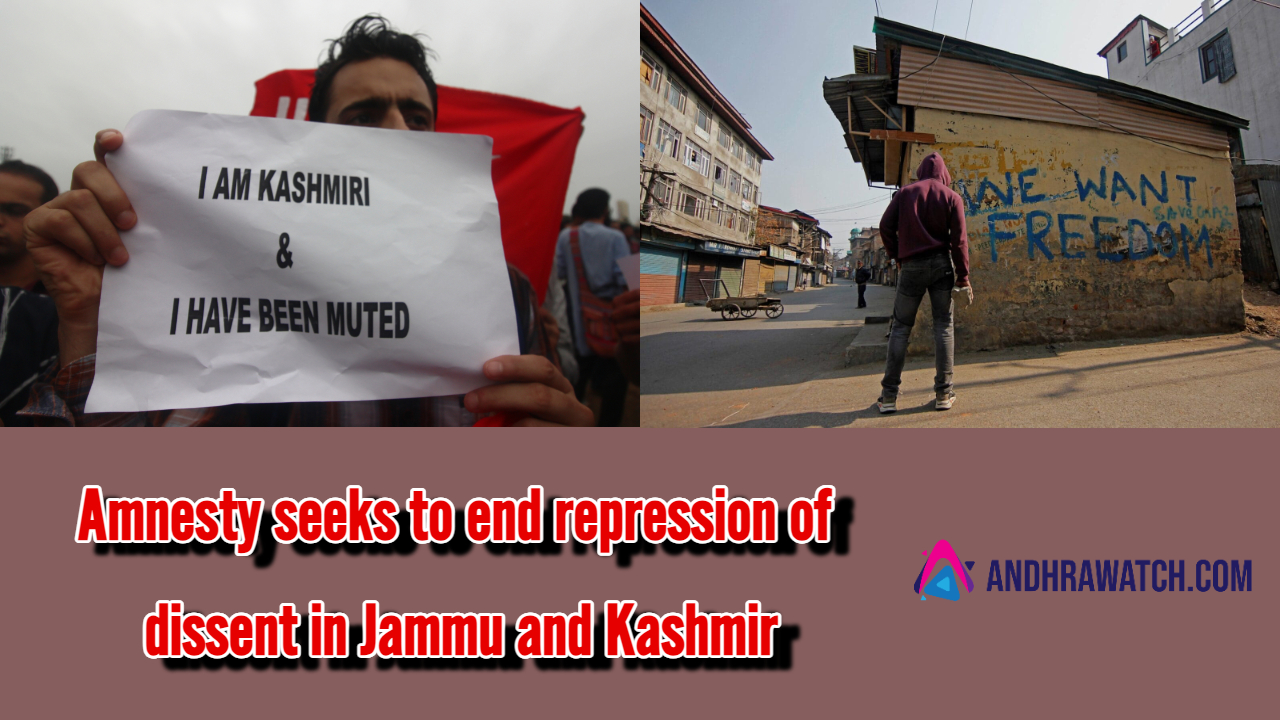The Indian authorities must stop using restrictive travel bans and arbitrary detentions under the country’s stringent anti-terror laws to intimidate critical dissenting voices from speaking out on Jammu and Kashmir, Amnesty International said today ahead of the first state elections in the last ten years.
It deplored that the authorities’ escalating repression of human rights after India revoked the special autonomous status of the region has resulted in arbitrary detentions, passports being revoked, the creation of opaque ‘no flying lists’, the denial of entry into India and arbitrary cancellations of Overseas Citizenship of India (OCI) status and affected those with Indian and non-Indian citizenship speaking out against the repression.
“The Indian authorities are using arbitrary restrictions and punitive actions to create a climate of fear in Jammu and Kashmir. Anyone daring to speak out – whether to criticize the government or to stand up for human rights – faces a clampdown on their rights to freedom of expression and association and are unable to move freely within and outside the country,” said Aakar Patel, chair of board at Amnesty International India.
Amnesty said that the Indian authorities have imposed the bans without any written explanation, court order or proper notification within the legal time frame which indicate a form of retaliation against their legitimate human rights work around Jammu and Kashmir.
The government also continues to misuse the draconian Public Safety Act (PSA), which allows authorities to arbitrarily detain people for up to two years without charge or trial, and the Unlawful Activities (Prevention) Act (UAPA) to carry out arbitrary detentions. This has led to self-censorship of independent voices, and the Indian authorities’ near total control over information from Jammu and Kashmir, it added.
While there is no official data on the cancellation, denial, impounding or revocation of passports in Jammu & Kashmir, media reports suggest that about “98-200” passports may have been revoked since the abrogation of Article 370. Amnesty International documented in detail two cases of critics facing arbitrary passport revocation and one case of inordinate delays in issuance of passports.
As part of its research, Amnesty International reviewed the Habeas Corpus Petitions (HCPs) filed to challenge the detentions under PSA before the Jammu & Kashmir and Ladakh High Court in the periods of 2014-2019 and 2019-2024. It found that there was a seven-fold increase in the number of cases filed under the PSA after 2019, with Muslim-dominated Srinagar recording consistently more PSA cases than Hindu-dominated Jammu.
It said that the Indian authorities must go further and ensure all human rights are upheld and protected for everyone in Jammu and Kashmir. That is the ‘naya’ (new) Kashmir that the authorities must aspire to as they lay grounds for the return of the statehood of the region.










